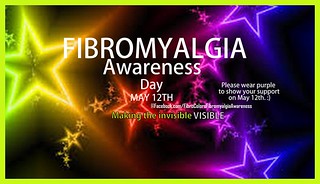originally published at VOTS
I guess the fibro flare was inevitable, what with the uptick in stress and all. The tiredness and muscle pain, well, I can deal with that. I’m only mildly annoyed, really. You want to know what’s killing me? The fog. The losing my train of thought, my next word, the standing there with my mouth hanging open…I hate that!
And it is stupid things too. I’ll be standing in kitchen, wanting more coffee, but being fogged, I will have left my cup by my computer. So I say, “Collin, could you bring me my….” that thing, that thing right there, I’m looking at it, I’m pointing at it, the kid is starting to look at me strangely now….”cup, that cup.” Damn it.
My dad talks to my while I’m typing. Well, to be honest, my dad talks to me, no matter what I’m doing. On the phone, typing, talking, reading, and normally, I don’t like to say anything to him because if I do he gives me that exaggerated ‘sorry” that tells me he’s anything but, and I ought to feel like shit for daring to speak. He just thought I’d like to know that pot roast was on sale. While I’m busy telling him that he buys it I just cook it– I look down to notice I just typed “pot roast”– in an e-mail to Dan’s teacher. Yeah…son of a bitch. Backspace, backspace, backspace…..ugh.
Then last night I pissed myself off so badly…I can scarcely express it. I’ve always been a bit of a channel surfer during commercial breaks. I was watching a true crime thing on Discovery ID and it went to commercial, so I surfed. Do you know I never came back? Nope. Just clean forgot I was watching something. It wasn’t like I found something more fascinating to watch on another channel or something like that, no. Oh, no, no, no! I was still mindlessly switching around when a glance at the clock showed me 59 minutes and I made an audible gasp. Now how the hell did that case turn out? Gah!
Stuff like this…it really bothers me.


